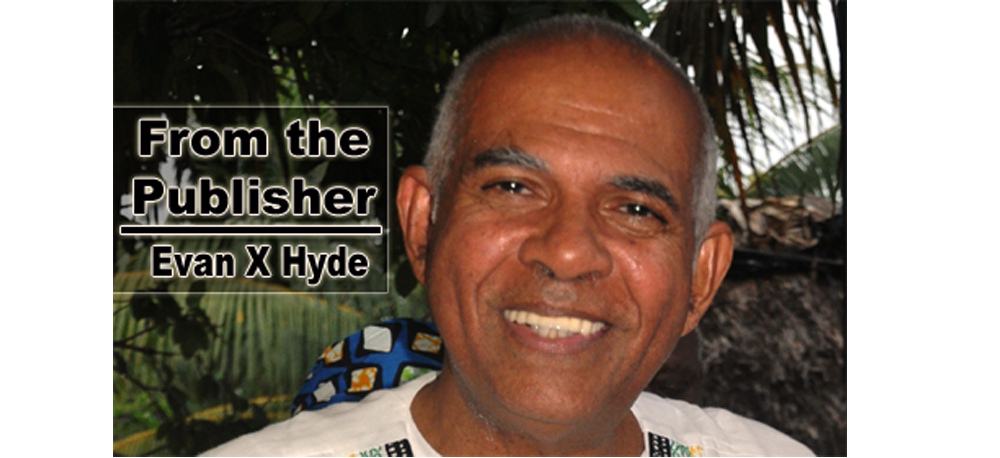Well, well, well — another holiday in Belize. This one used to be called Columbus Day when I was growing up. It was in honor of an Italian named Christopher Columbus, who was then rated as a great sailor, explorer, conqueror, and so on and so forth. He was financed in 1492 by King Ferdinand and Queen Isabella of Spain, who had just succeeded in chasing out the North African Moors who had ruled Spain for 700 years.
If you look at the map of Europe, you will see that Spain and Portugal are on one piece of land (called the Iberian Peninsula) next to each other in the southwestern section of the continent. These two countries are on the northern side of the Mediterranean Sea, with the Portuguese being next to the Atlantic Ocean on their western side and Spain being next to the Mediterranean and a country called Andorra on their eastern side.
There are two major points I want to make about Spain and Portugal. They are both heavily Roman Catholic (as was all of Europe before Martin Luther and the so-called Reformation in 1517), and the Portuguese were the superior sailors.
According to Adam Hochschild in King Leopold’s Ghost, “In the 1440s, Lisbon’s shipbuilders developed the caravel, a compact vessel particularly good at sailing into the wind. Although rarely more than a hundred feet long, this sturdy ship carried explorers (Portuguese) far down the west coast of Africa, where no one knew what gold, spices and precious stones might be.”
I think it was in the 1480s that the Portuguese circled the southern tip of Africa, and got east into the Indian Ocean, and reached Asia, specifically the spectacular India, where they were excited by all the exotic spices, jewels, fabrics, and other materials they discovered, materials which did not exist in Europe.
Everyone in Europe now wanted to reach Asia. Columbus was looking for a financier. He believed that the world was round, and that if he sailed far enough west from Europe he would eventually reach India and Asia, where all the magical materials the Portuguese had found were located.
Eager to catch up with the Portuguese, Ferdinand and Isabella gambled on Columbus, and the Italian outfitted three vessels and set out west across the Atlantic Ocean. There are strong reasons to believe that Africans from the continent had reached the so-called New World centuries before Columbus did on October 12, 1492. In any case, it does not appear to me that anyone had gone west, like Columbus, and succeeded in returning to Europe to tell his story. So, Columbus’ achievement was a great and historic one.
Because of the fact that Columbus was a Catholic Christian, he was made into a hero even though he robbed and massacred the Indigenous people he found in the Caribbean. When a Columbus Day was declared in the early twentieth century in the United States by Italian Catholics to glorify Columbus, this holiday was honoring a lie.
I don’t know how and when Columbus Day was made a holiday by the British colony of Belize (British Honduras), but I met that reality as a child growing up under British colonialism, which had welcomed Roman Catholicism among Mexican refugees here after the Caste War in the Yucatan Peninsula in the second half of the nineteenth century.
It was when the quincentennial anniversary of Columbus’ arrival in the New World was about to be celebrated in 1992 that a movement emerged worldwide to blow up the lies which had glorified Columbus. So it became embarrassing for independent Belize to be celebrating a Columbus Day when the majority of our Belizean people were descendants of those who had been slaughtered by the Italian and those Europeans who followed him. Instead, Columbus Day began to become a Pan-American Day and a Dia de la Raza on October 12, but the holiday remained in place.
Some years back, our authorities made the Columbus Day of my youth into an Indigenous Resistance Day. The contradiction here is that our Belizean schools still refuse to teach Mayan history, and so our people do not know exactly what the holiday is about. The situation is practically confusing. At the very least, it is not precise.
The bottom line, if one takes the overview, is this: those Europeans who conquered and colonialized our ancestors, then educated our ancestors’ children in Christian schools. It was taught to our people in these schools that salvation and resurrection were brought to us by a blonde-haired, blue-eyed Jesus. Such a teaching continues to rule Belize, and Columbus Day was a part of the historical concoction.

